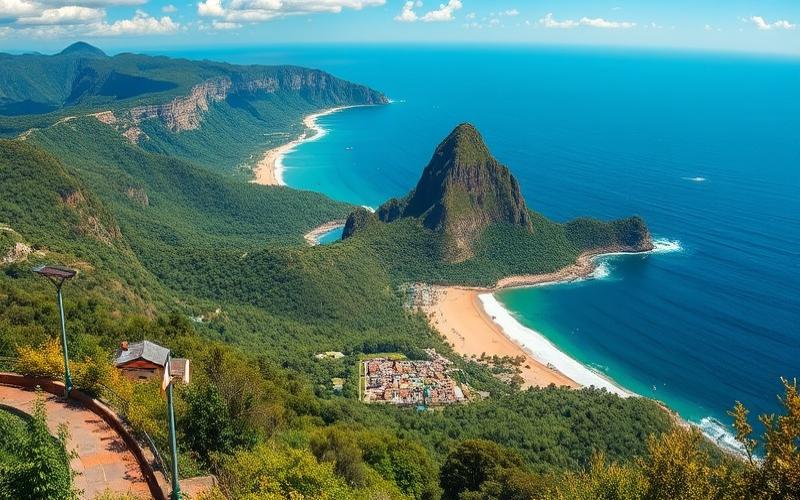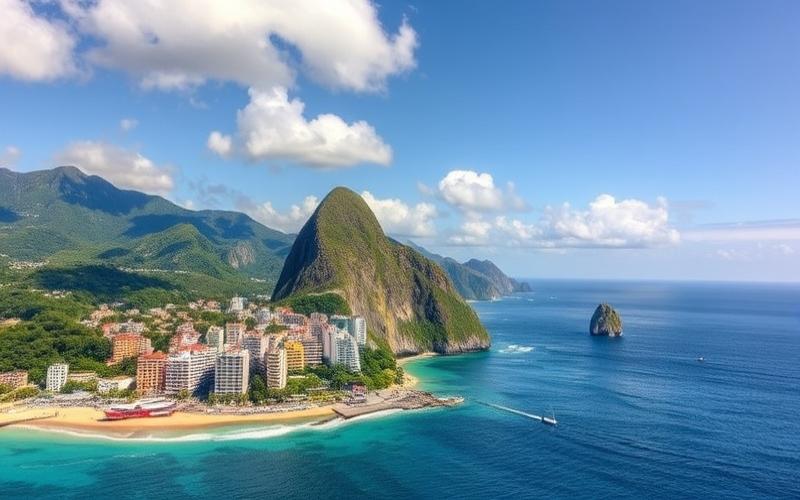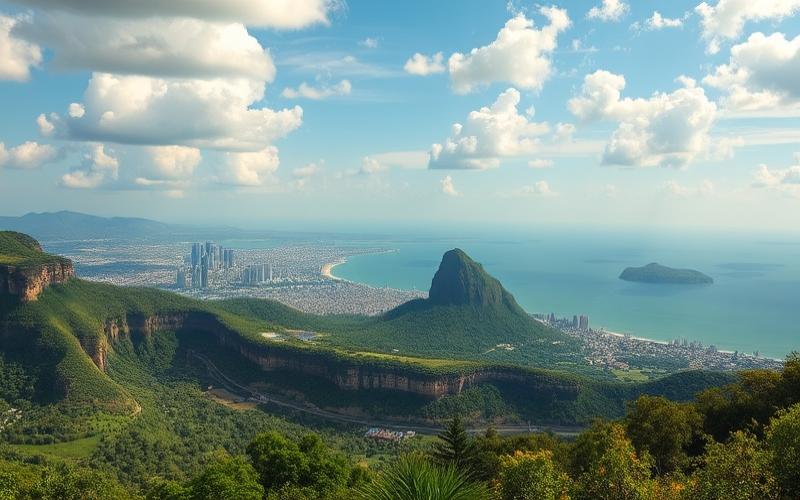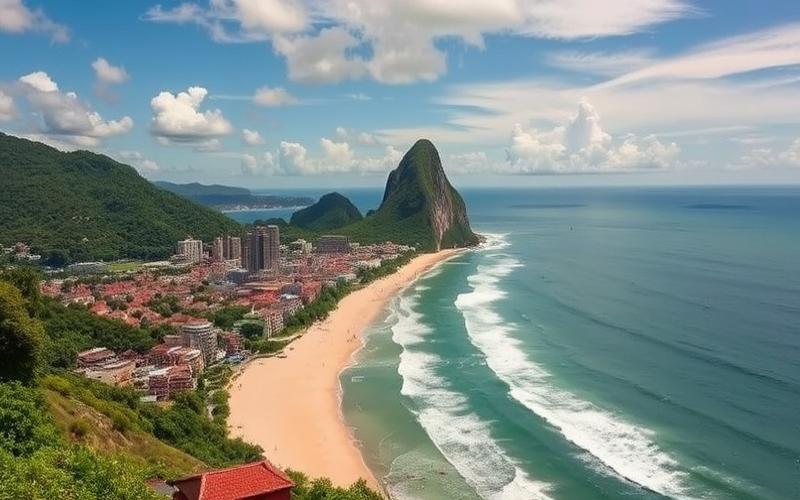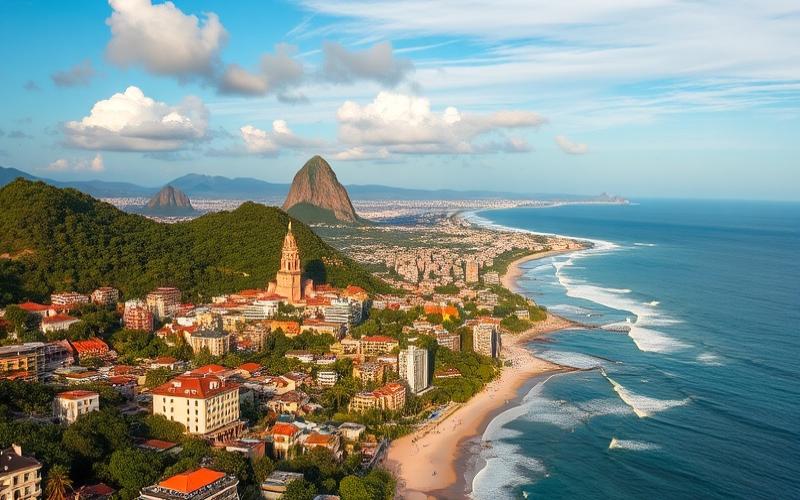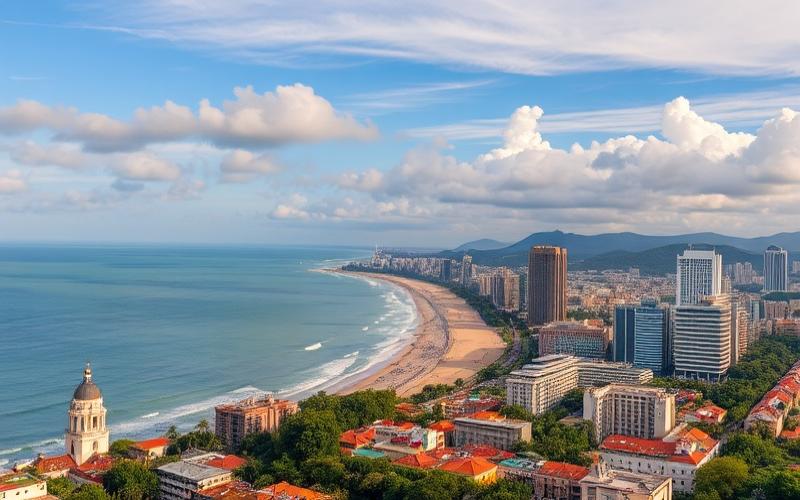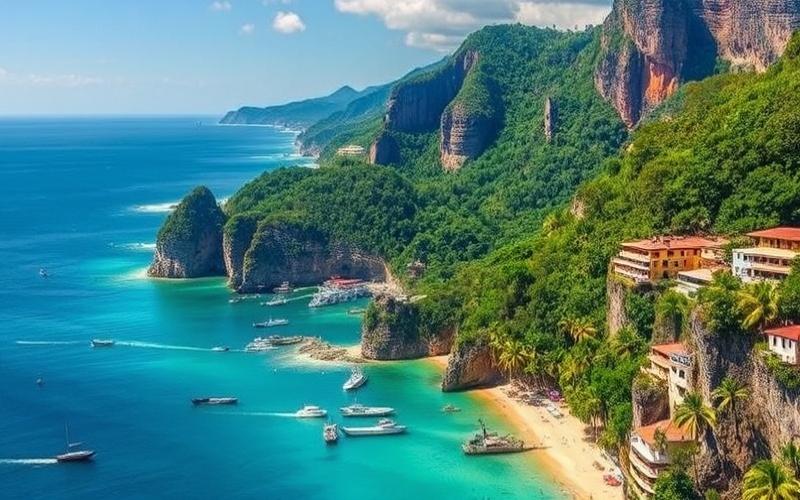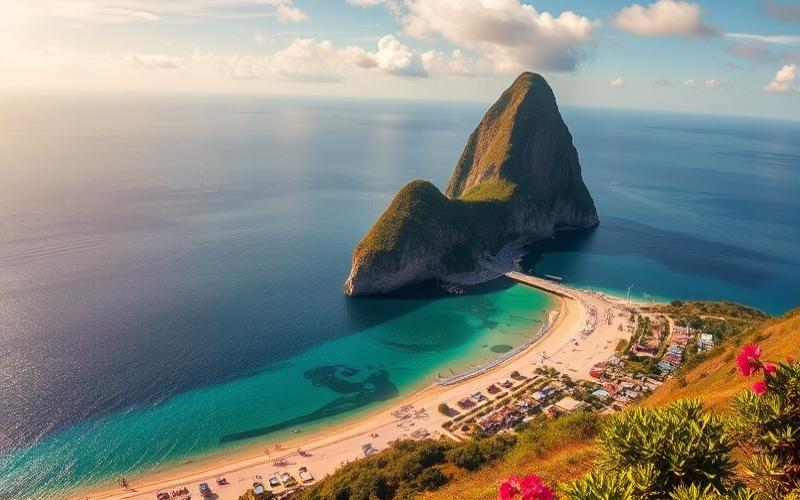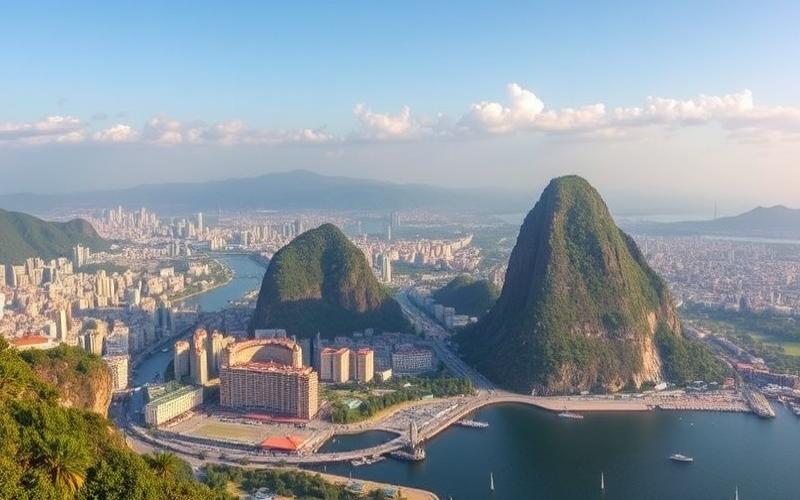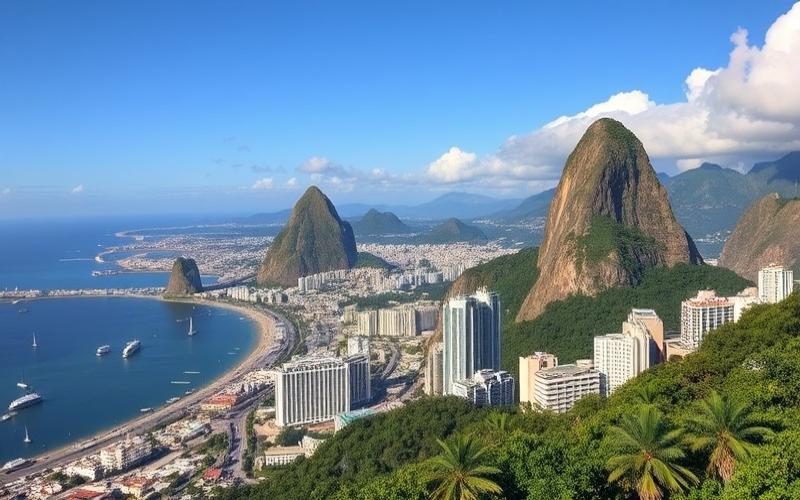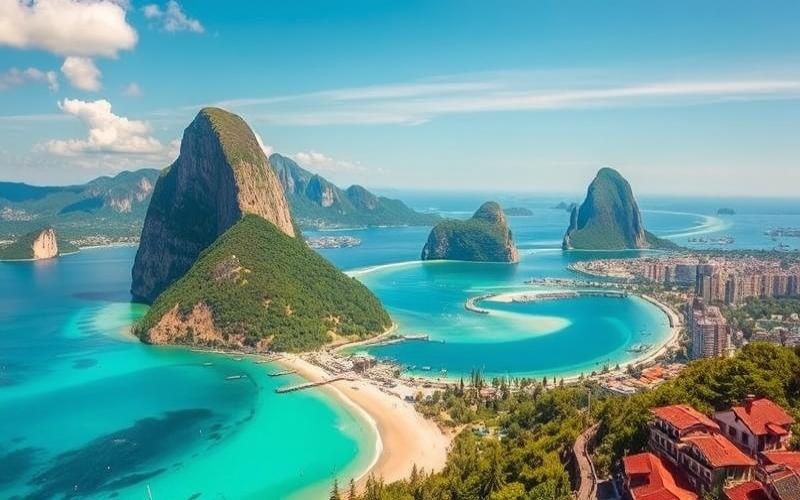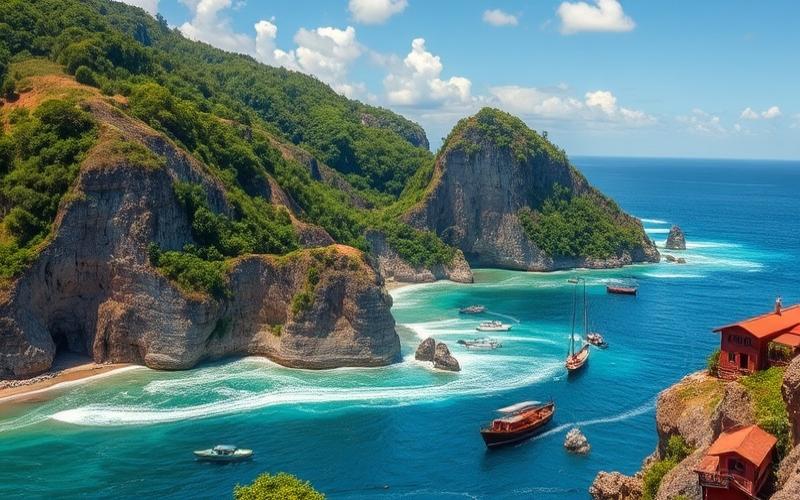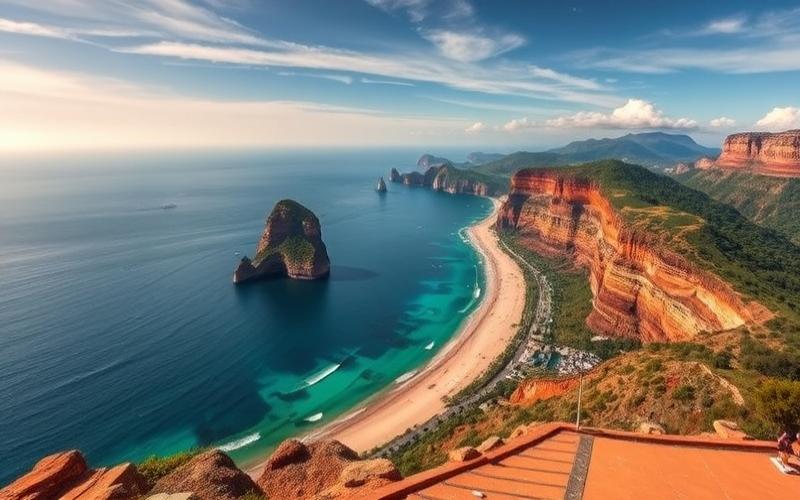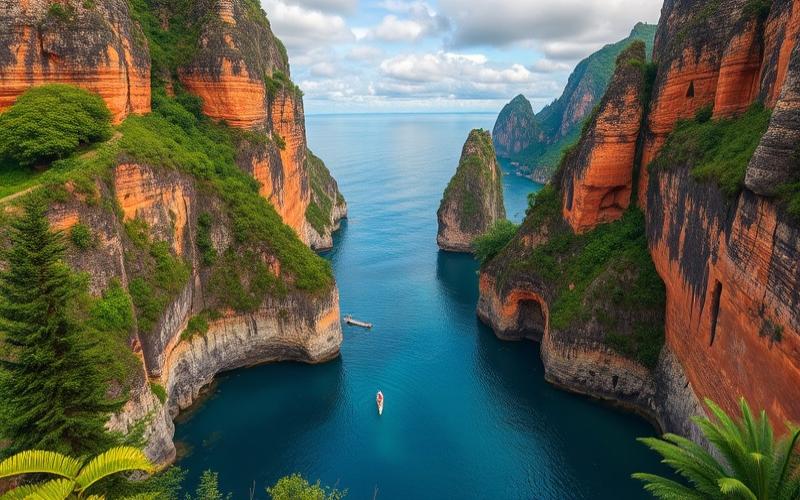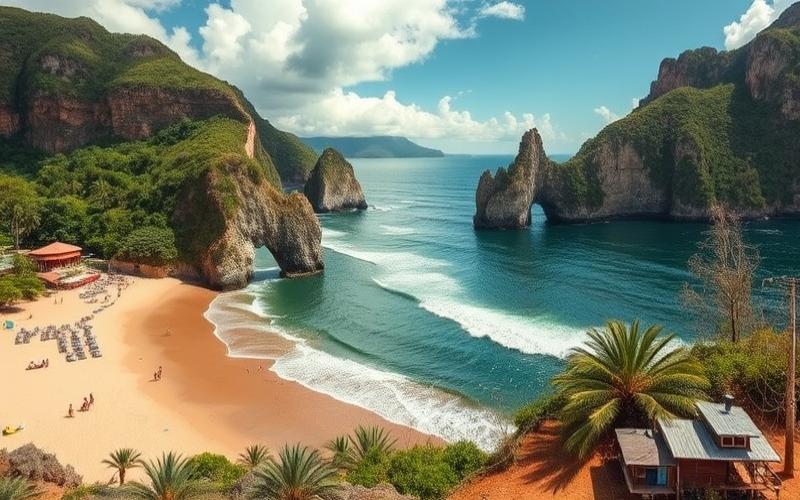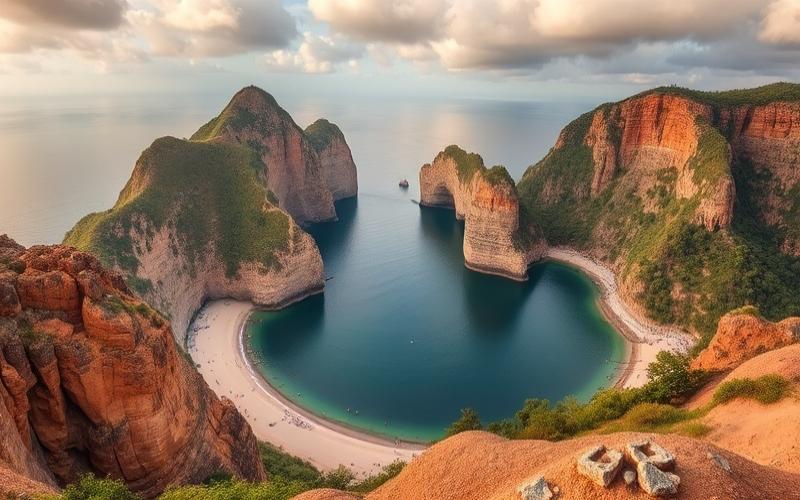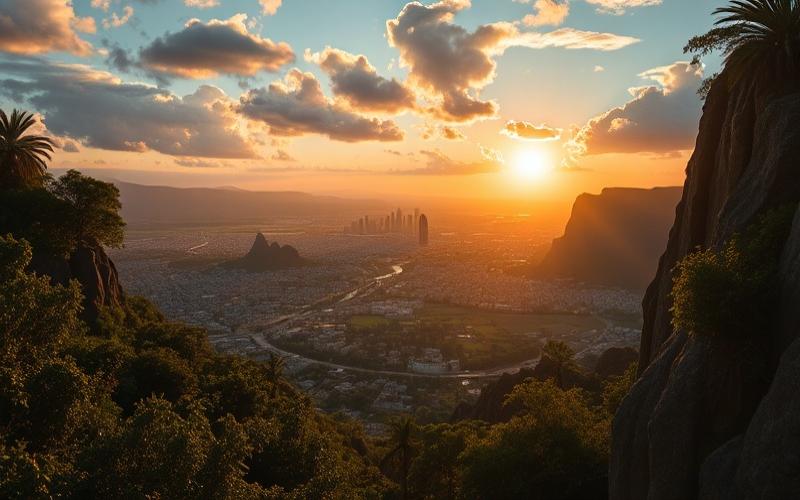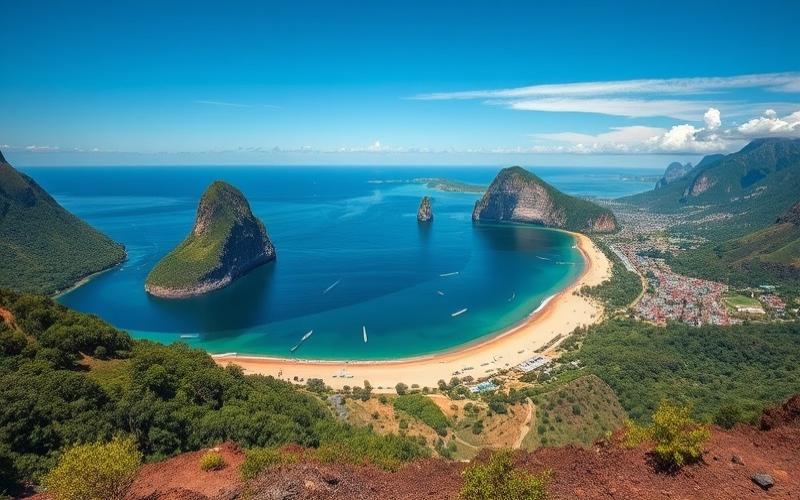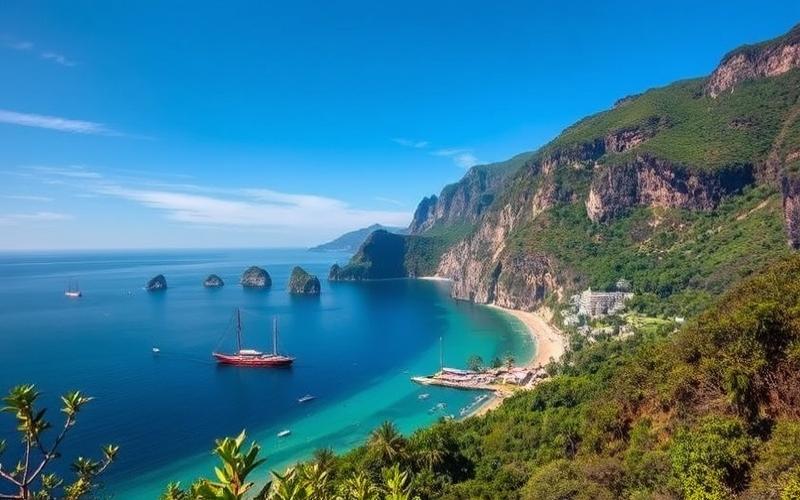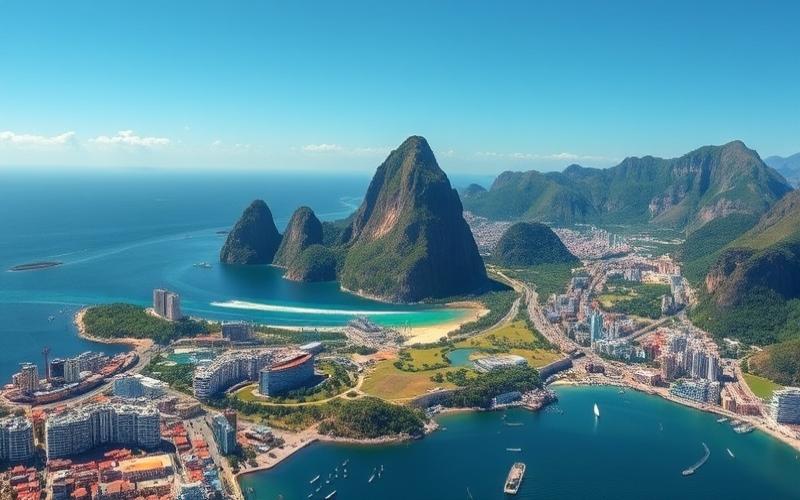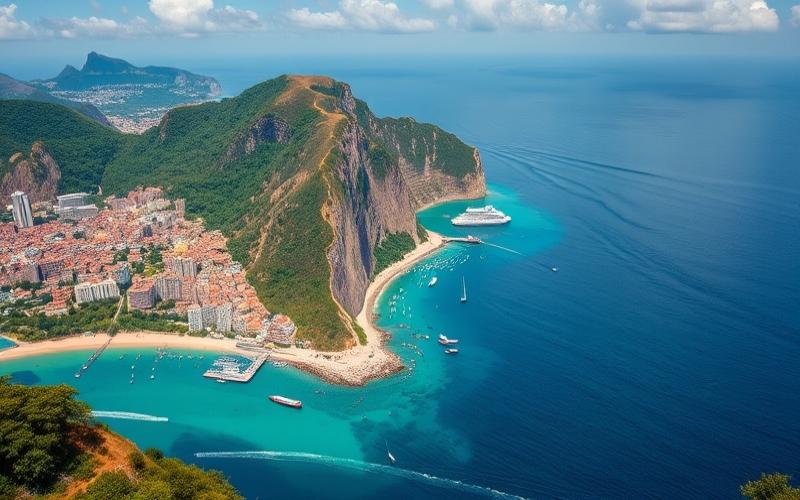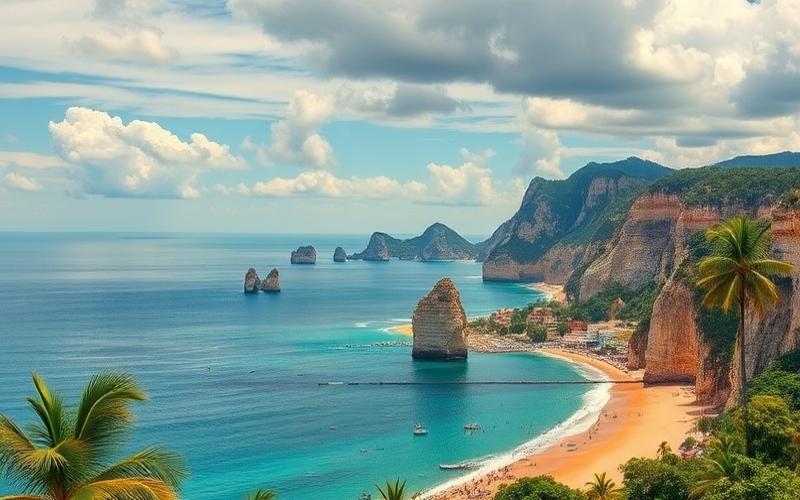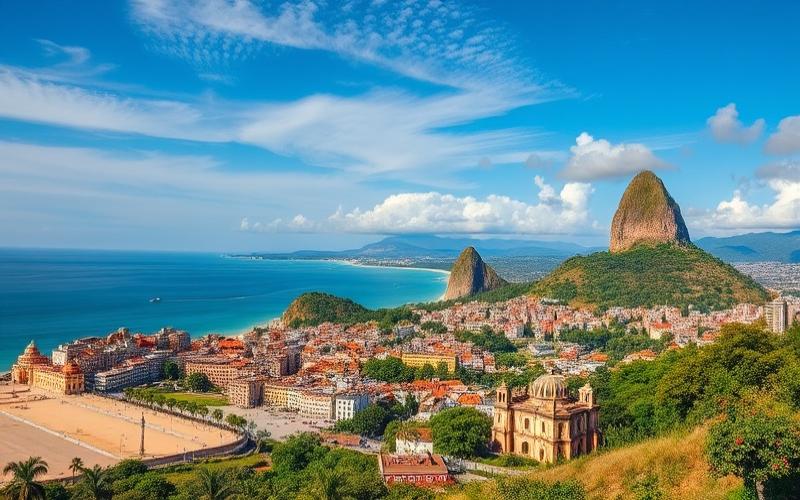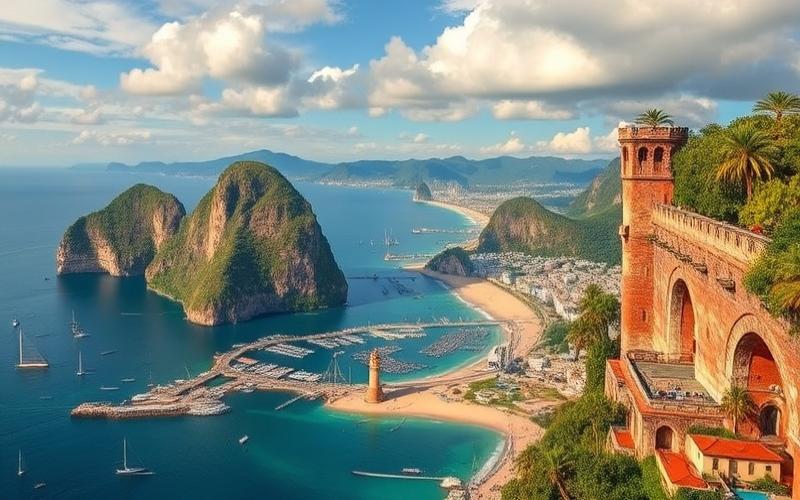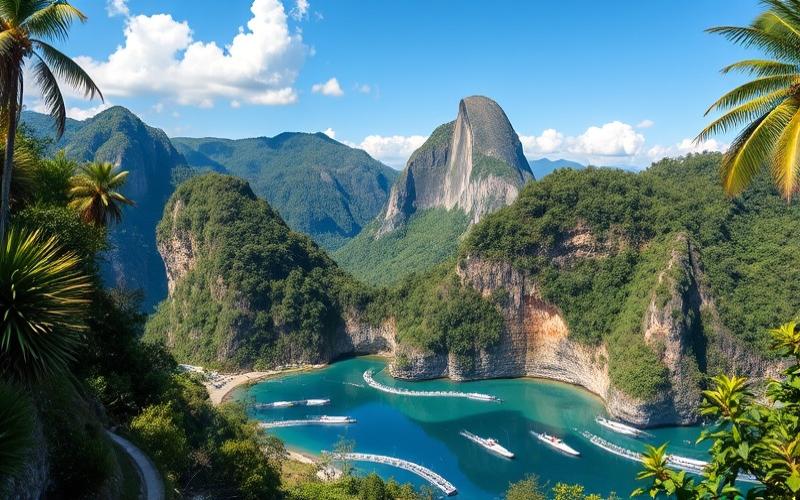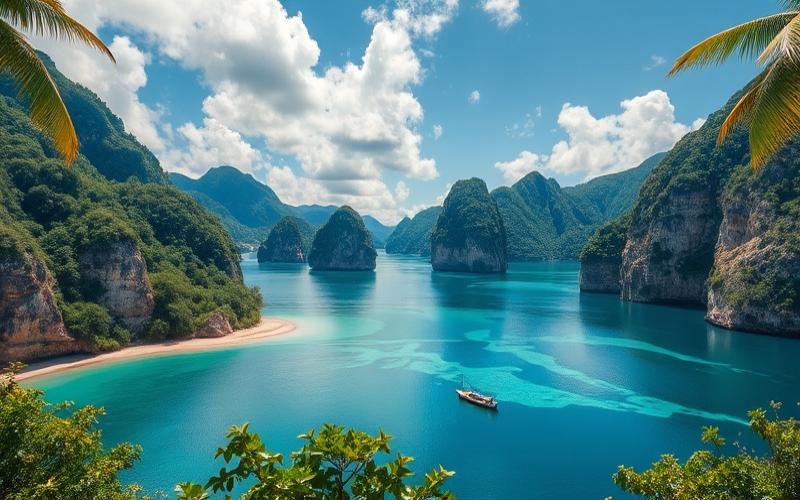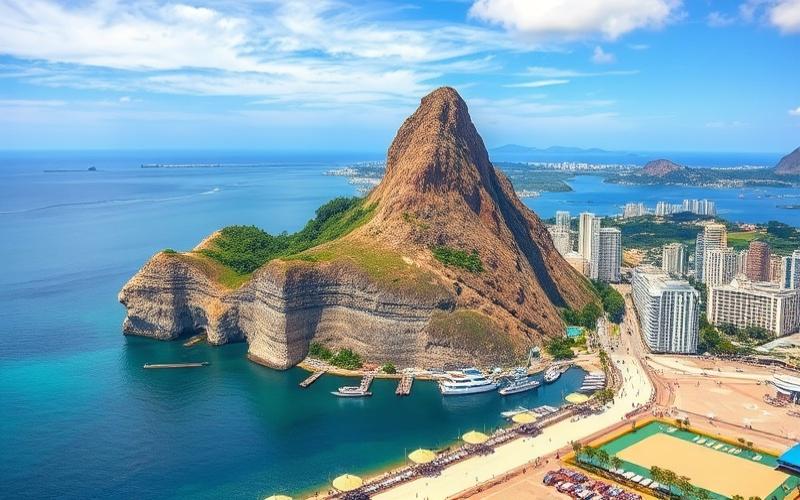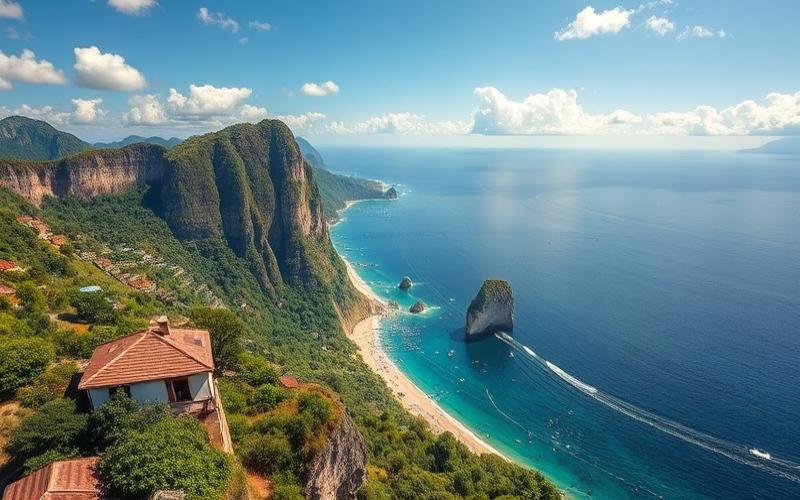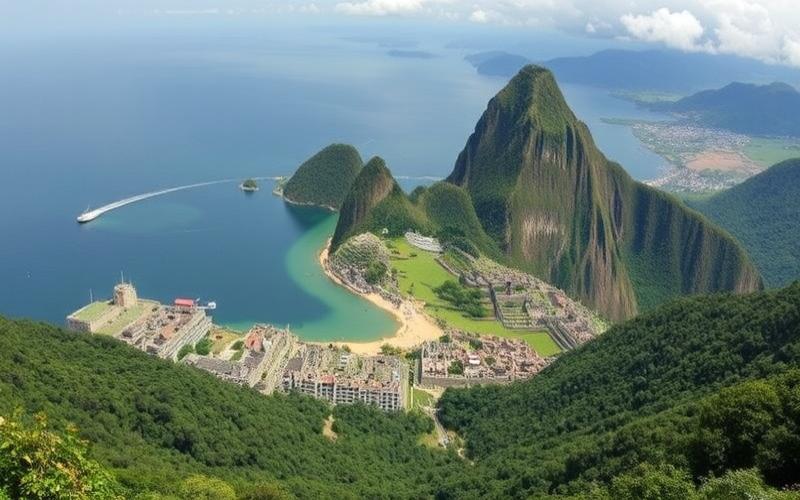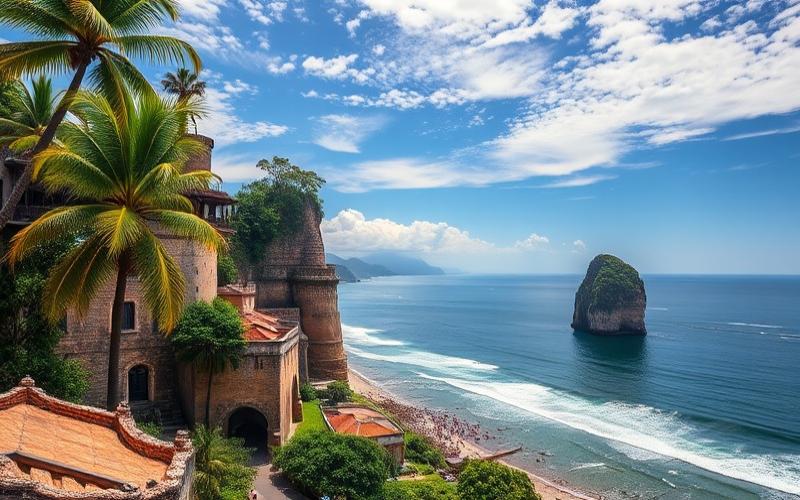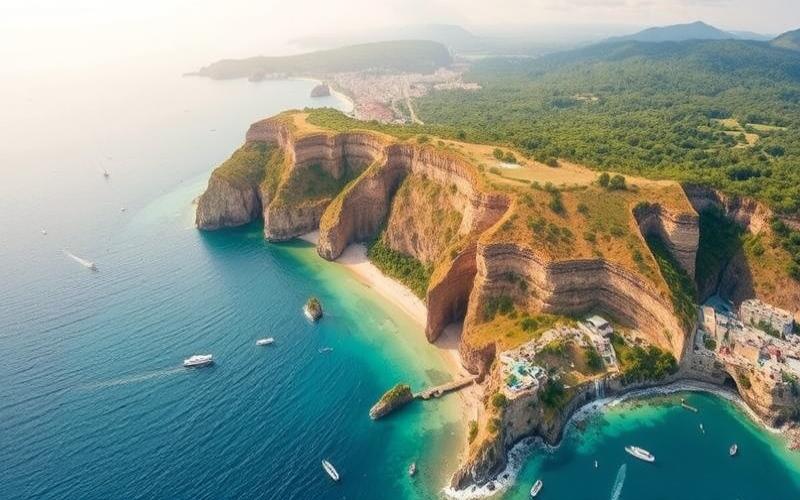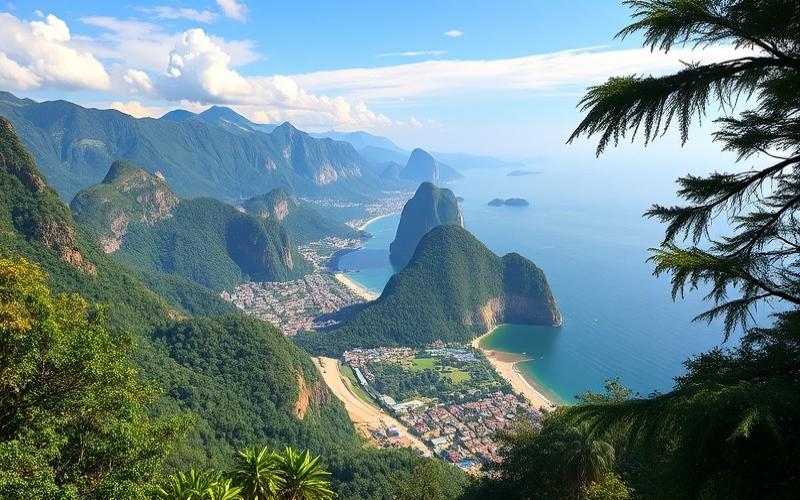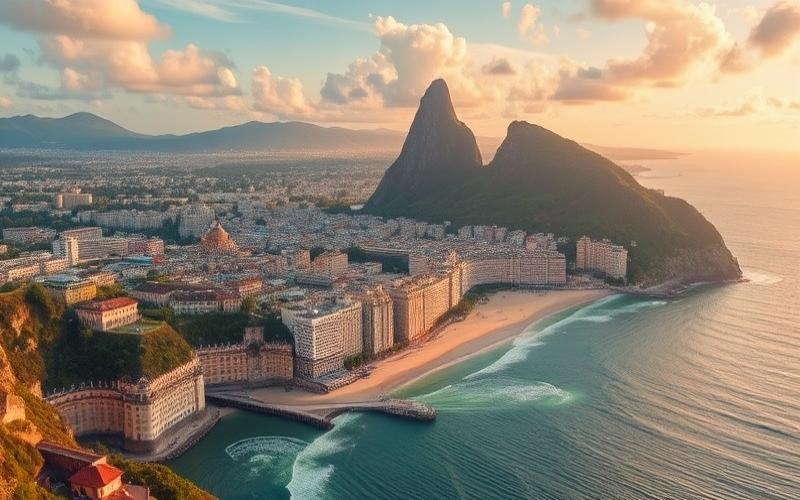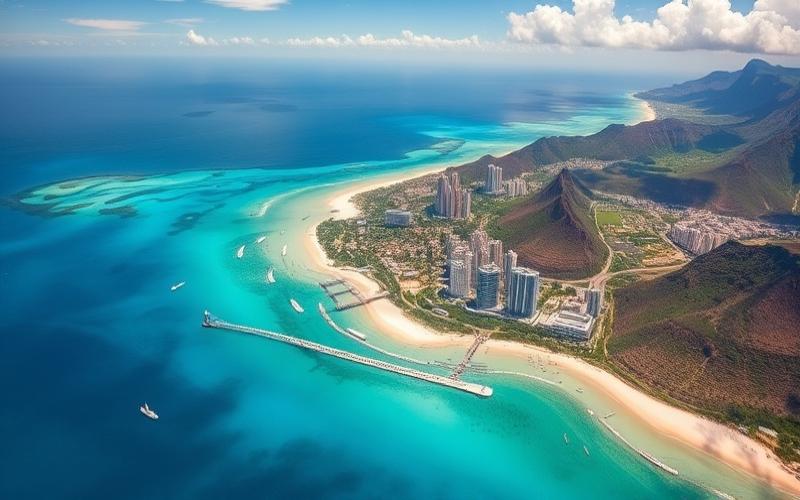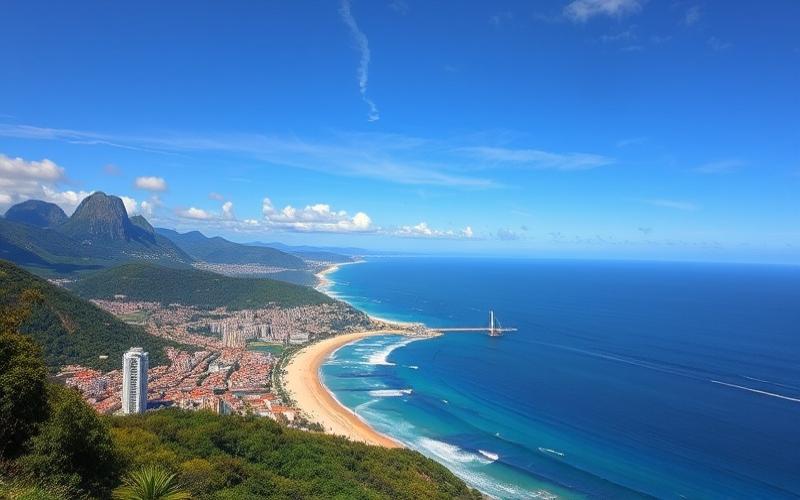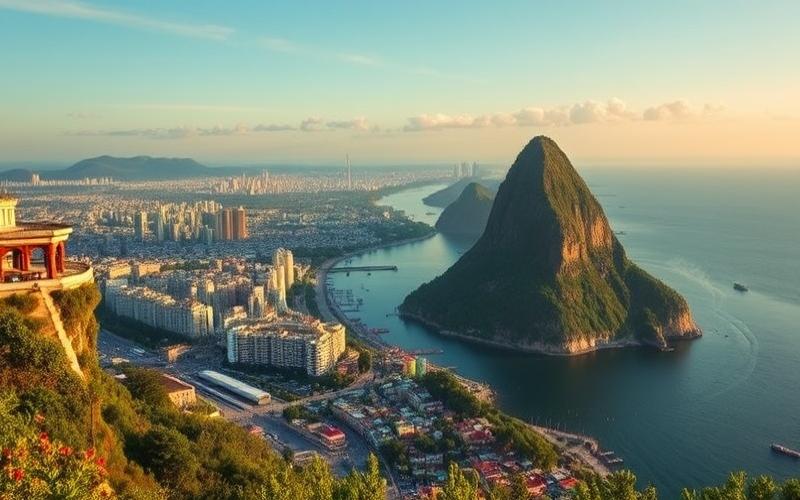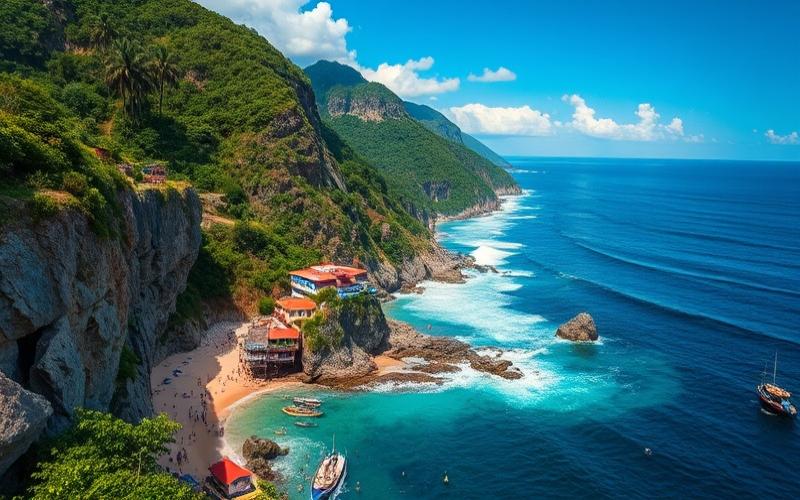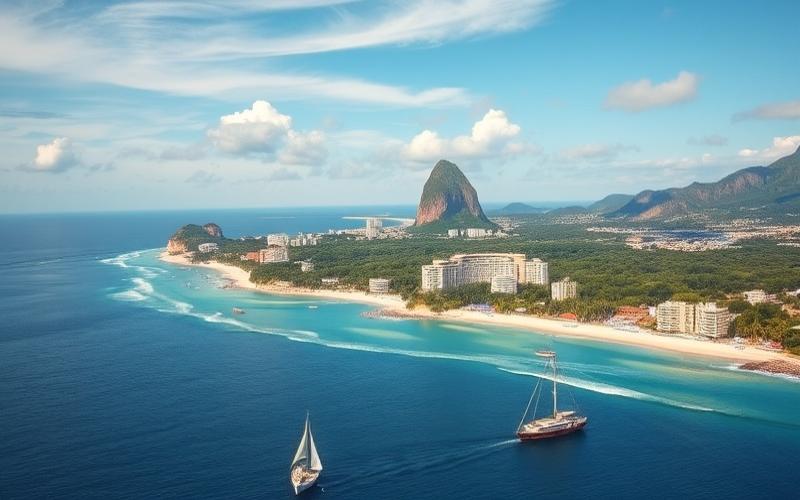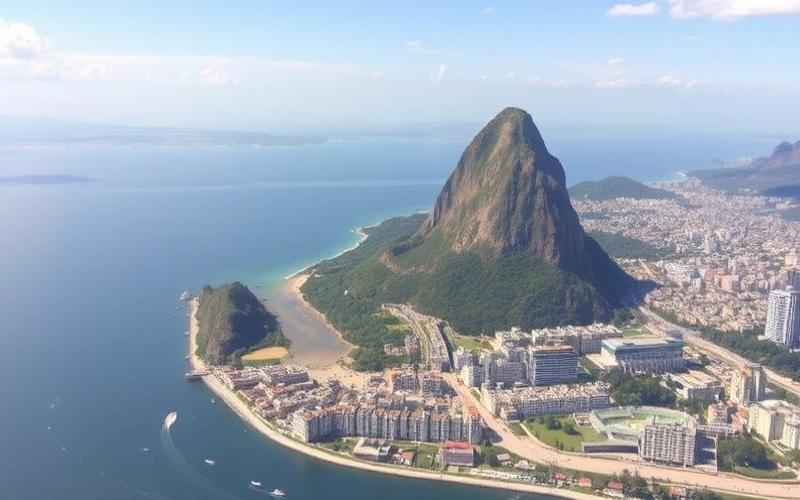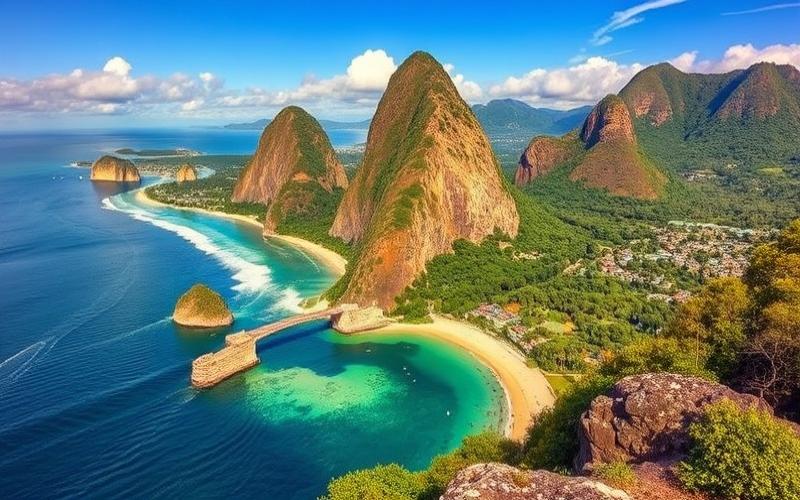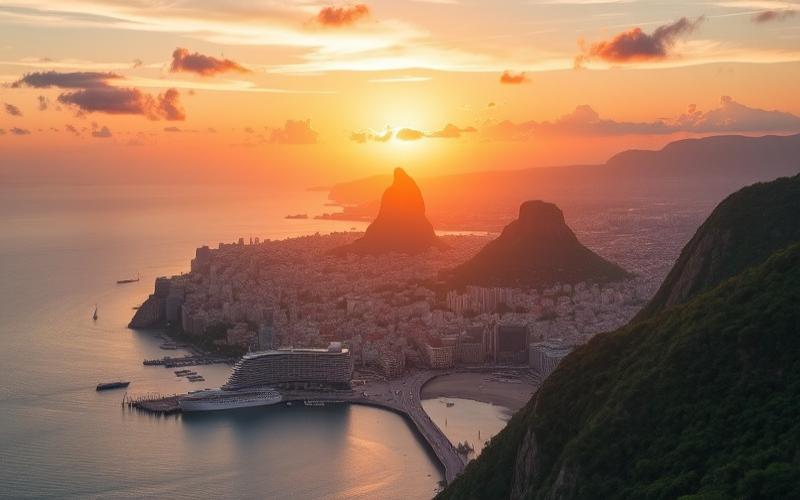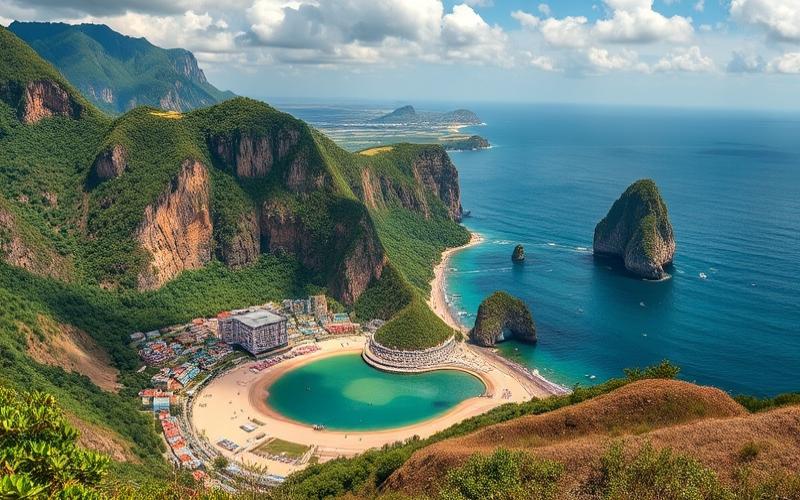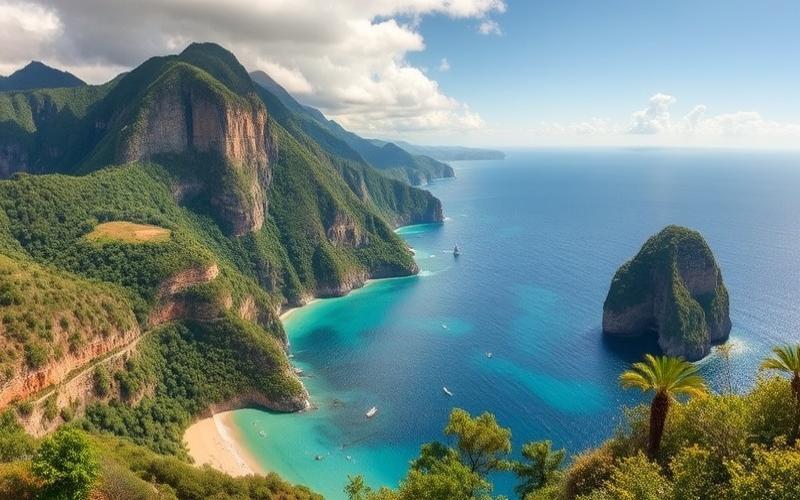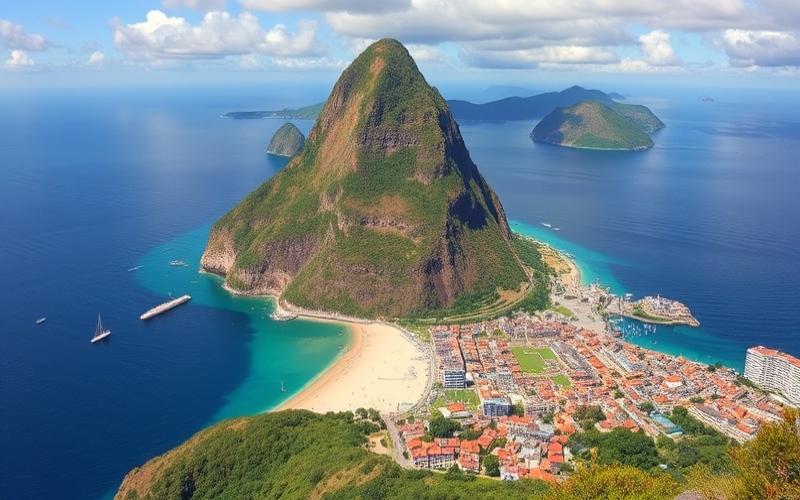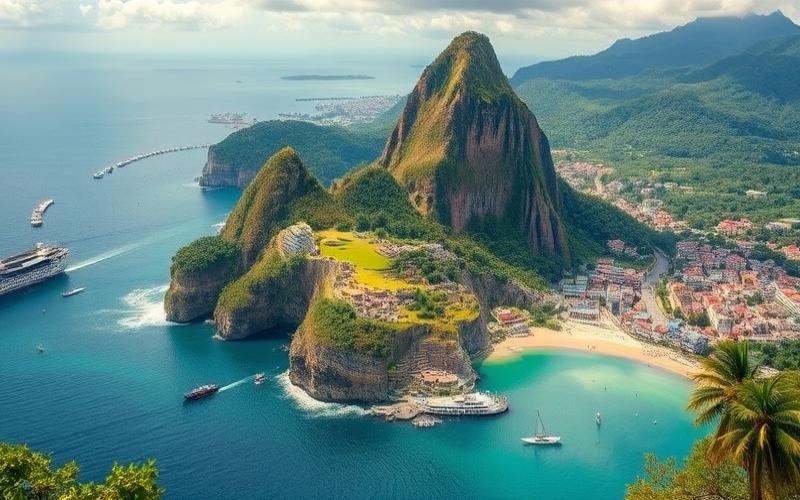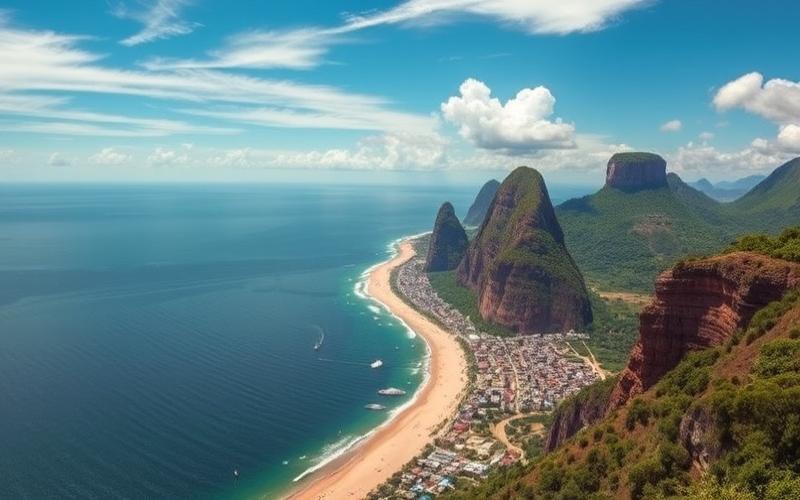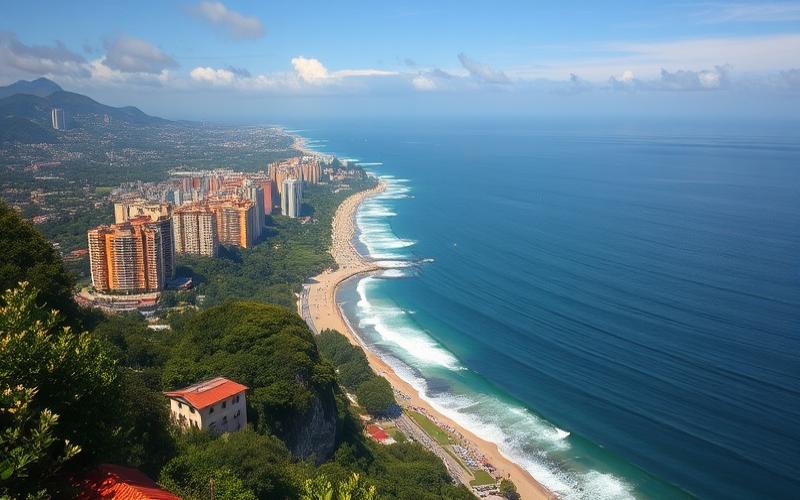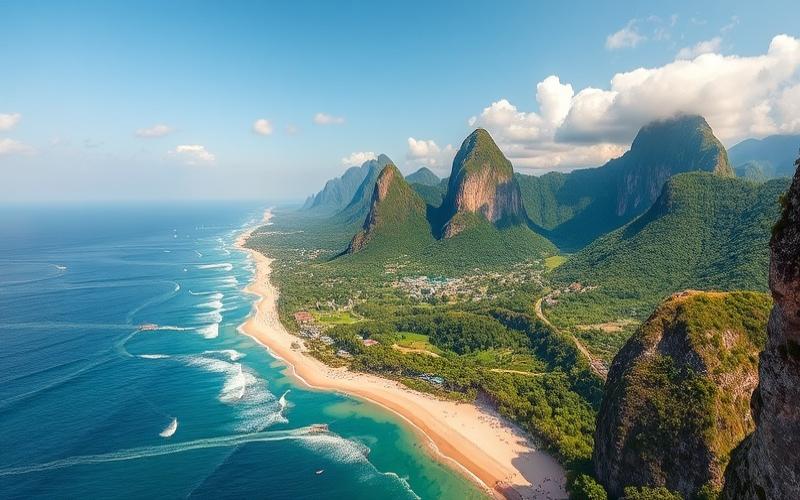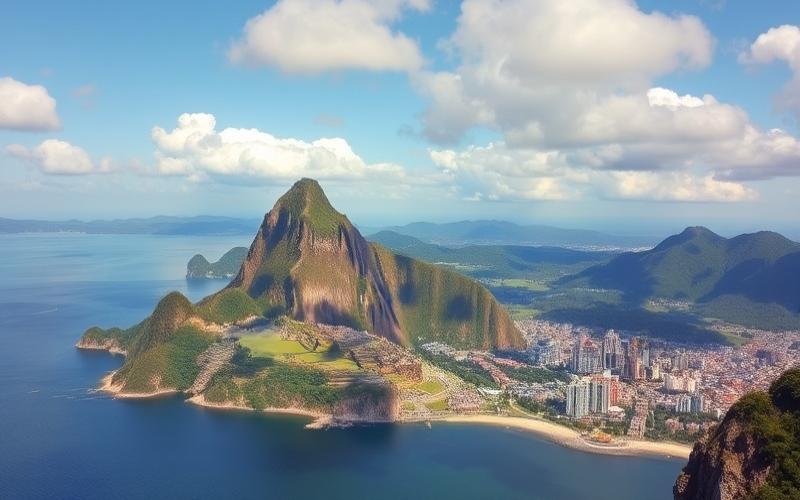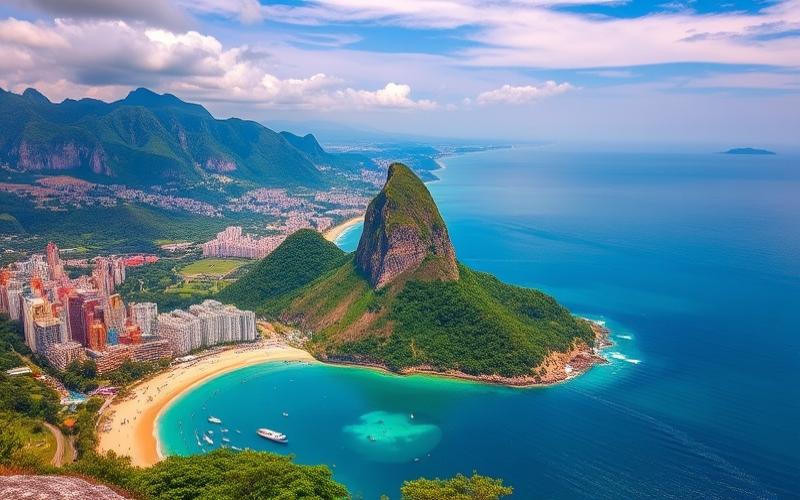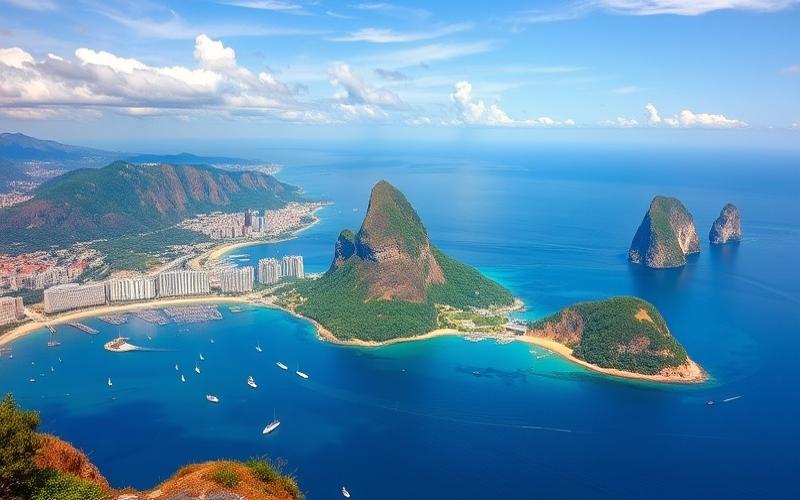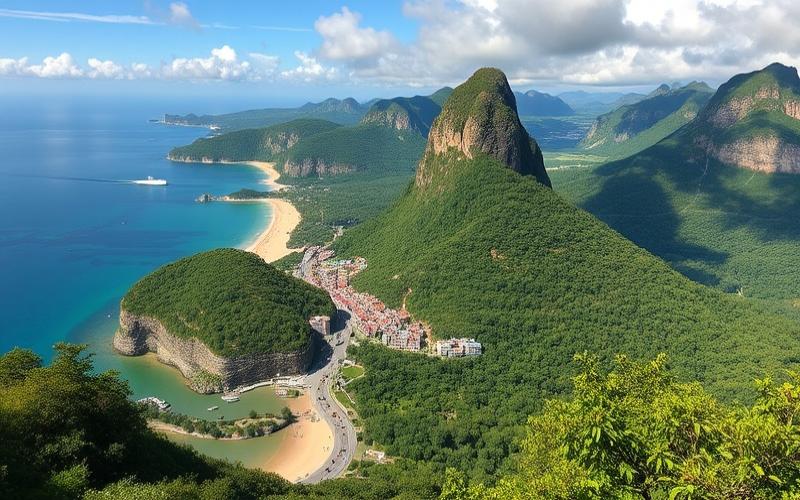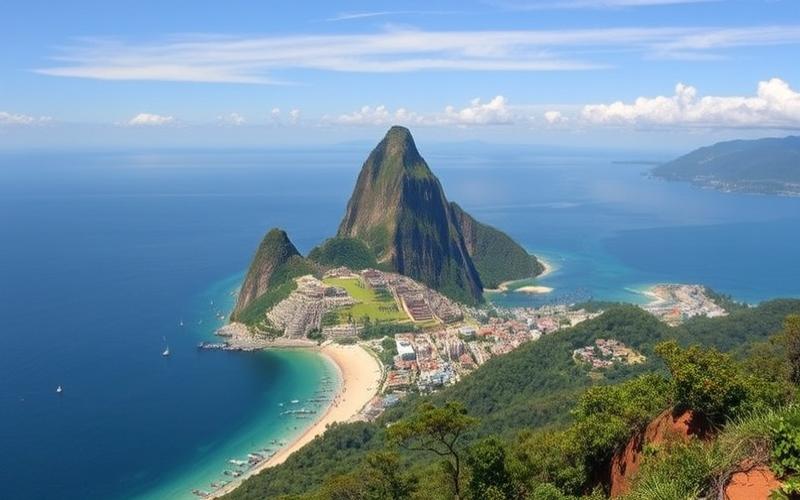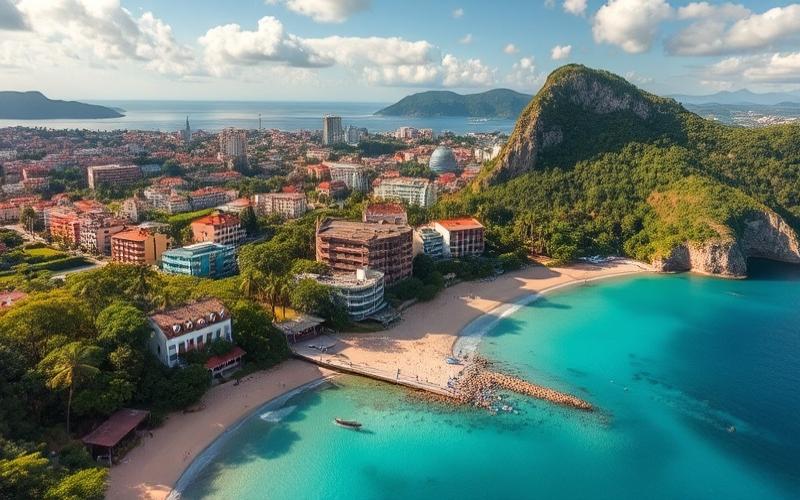
 Published on and written by Cyril Jarnias
Published on and written by Cyril Jarnias
At a time when environmental issues are taking on crucial importance globally, Brazil finds itself at the heart of concerns due to its exceptional biodiversity and the vast expanse of the Amazon within its territory. Brazilian environmental legislation, as rich as it is complex, unfolds through a range of ambitious regulations, aiming to protect not only the local ecosystem but also to offer a significant contribution to global preservation efforts.
However, this legislation faces considerable challenges, heightened by economic and political pressures, which often call into question the country’s environmental progress. Brazilian initiatives, both at the governmental level and through civil society, seek to balance economic growth and ecological sustainability, setting milestones for a future where sustainable development is not just an ideal, but a tangible reality.
Environmental Law in Brazil: Legislative Framework and Challenges
Historical Overview of Brazil’s Environmental Legislative Framework
- Initial environmental concerns emerged in the 1960s, with a turning point at the Stockholm Conference (1972).
- The first Forest Code dates from 1965 (Law 4771/1965), replaced by the new Forest Code in 2012 (Law 12651/2012).
- The fundamental law remains Law No. 6.938/1981, which establishes the National Environmental Policy.
- The 1988 Federal Constitution, in Article 225, enshrines the right to a healthy environment and mandates its protection as a collective and state duty.
- Significant advances were made during international summits held in Brazil: ECO92/Rio92 (1992) and the signing of major agreements on sustainable development.
- Several recent amendments have been adopted to streamline or simplify environmental procedures, notably the creation in July 2025 of a fast-track regime for certain so-called “strategic” projects, as well as a self-declaration system for projects deemed “small” or “medium,” thereby limiting some powers of specialized agencies.
| Date | Fundamental Text | Main Advancement |
|---|---|---|
| 1965 | Former Forest Code | Initial legal foundations |
| 1981 | National Environmental Policy Law No. 6.938 | General definition & instruments |
| 1988 | Federal Constitution | Right to a healthy env. / shared responsibility |
| Since Recent Years | Multiple sectoral laws and reforms | Mandatory impact studies, protected biomes, regulatory simplification |
Main Government Agencies and Active NGOs
Main Public Agencies:
- IBAMA (Brazilian Institute of Environment and Renewable Natural Resources): main body responsible for control, inspection, and administrative sanctioning of environmental offenses.
- MMA (Ministry of the Environment): defines national policies; supervises IBAMA.
- Chico Mendes Institute for Biodiversity Conservation (ICMBio): manager of federal protected areas.
Notable Non-Governmental Organizations:
- Greenpeace Brazil
- WWF Brazil
- Instituto Socioambiental
These NGOs play a crucial role in independent monitoring, legal actions against certain public or private policies deemed harmful, as well as in public education.
Main Current Challenges
- Amazon deforestation: recent increase in pace despite set targets; heightened agricultural pressure; partially effective sectoral moratoriums.
- Legal obligation: conserve up to 80% of native forest cover in the Amazon on each private property.
- Target limit set by public policy: maximum 3,500 km²/year, regularly exceeded in recent years.
⚠️ Deforestation remains a central issue that catalyzes internal/international tensions.
- Sustainable management of water resources:
- Persistent industrial/agricultural pollution;
- Marked regional inequalities in access to safe drinking water;
- Problems exacerbated during extreme weather events.
- Climate change:
- Proven increase in national average temperatures;
- Increased frequency of extreme events affecting agriculture & cities;
- Growing international pressures regarding the country’s actual commitments.
Tensions Between Economic and Environmental Policies
Brazilian economic development heavily relies on:
- Export-oriented agribusiness,
- Mining,
- Large energy infrastructure,
which often leads to direct opposition with ecological imperatives. The legal framework attempts several reconciliations:
- Systematic introduction of mandatory impact studies for major projects since the late 80s,
- Tax incentives or green credits conditional on ecological criteria,
- Strict obligations but also numerous exemption mechanisms recently introduced to “accelerate” certain strategic investments — sometimes at the expense of thorough prior control.
| Challenge | Dominant Economic Policy | Legal/Environmental Response |
|---|---|---|
| Agricultural expansion | Public support/credit facilitation | Forest Code/soy moratorium |
| Mining & heavy infrastructure | Special authorization regime/LAE-LAC Licenses |
Recent parliamentary debates, however, show a tendency to further prioritize immediate economic interests through various controversial regulatory flexibilities.
Challenges Related to Effective Enforcement & Improvement Efforts
Main Obstacles:
- Chronic lack of human & technical resources at IBAMA/MMA compared to the areas concerned;
- Local pressures/politicization making uniform enforcement across states/regions difficult;
- Recent emergence of accelerated procedures reducing effective ex-ante control capacities;
Efforts Undertaken/Planned Improvements:
- Targeted reinforcement through coordinated national campaigns against illegal clearings,
- Progressive development of digital/satellite tools enabling better continuous surveillance,
- Increasing international cooperation — including potential trade sanctions targeting products from illegally deforested areas,
- Heightened citizen mobilization through organized civil society demanding greater transparency/real diligence.
Good to Know:
Brazil’s environmental legislative framework has evolved since the 1980s, with major laws like the Forest Code and the commitment of IBAMA and ICMBio; however, deforestation in the Amazon remains a critical issue, accentuated by the challenge of reconciling economic development and conservation.
Brazil’s Ecological Policies: A Model for Expatriates
Main Ecological Policies Implemented by the Brazilian Government
- “Resilient Green Cities” Program: launched in 2025, this program structures 100 high-impact climate actions in cities, including the restoration of urban green spaces and bus electrification in 50 cities.
- Law on the Ban of Solid Waste Imports: recent measure aimed at reducing pollution related to imported waste.
- Concession Projects for Sustainable Transport Infrastructure: planning of 87 new projects to improve logistics while integrating environmental concerns.
| Ecological Initiative | Main Objective | Year |
|---|---|---|
| Resilient Green Cities | Urban climate actions | 2025 |
| Solid Waste Import Ban Law | Pollution reduction & sustainable management | 2024 |
| Sustainable Infrastructures | Greener transport | Starting 2025 |
Recent Initiatives for the Amazon and Renewable Energy
- Natural regeneration methods tested in the Amazon, although they may generate low-biodiversity areas if poorly applied.
- Public policies aiming to reduce deforestation with reinforced monitoring of deforestation alerts.
However, several contradictory signals exist:
- Recent authorization of oil drilling near the Amazon delta.
- Controversial paving project (BR-319 highway) crossing a sensitive area previously spared from deforestation.
Impact on Biodiversity and Local Environment
Positive Points:
- Urban initiatives (green cities) promote the return of local ecological corridors and reduce polluting emissions.
Negative Points:
- Recent laws simplifying environmental procedures (“devastation law”) risk accelerating industrial projects at the expense of protected biomes.
Potential Effects:
The reduction in institutional control could favor a rapid increase in the number of environmental offenses, directly threatening several endemic species as well as Brazil’s key role as a global carbon sink.
Notable Examples That Have Sparked International Interest
- The launch of the “Resilient Green Cities” program was praised at major international events such as COP30.
- Debates around new legislation are closely followed by international NGOs and foreign governments concerned about their global impact on the climate.
Collaborations Between Brazil and Other Countries
Non-exhaustive list:
- Technical partnerships via CHAMP (Coalition for High Ambition Multilevel Partnerships).
- Bilateral cooperation in the scientific field via FNDCT (National Fund for Scientific Development), notably with European countries around clean technologies.
How These Policies Can Inspire Expatriates:
- Adopt or promote locally certain practices derived from the Brazilian model: participatory urban reforestation, progressive electrification of public transport.
- Engage in or financially/professionally support active NGOs in Brazil working for responsible natural resource management.
- Participate in international networks related to CHAMP or other coalitions that promote multilateral exchange on good climate practices.
Current Challenges:
⚠️ Despite these advances:
- Internal political pressure remains strong between ministries favoring rapid economic development (oil drilling, trans-Amazonian roads) and historical defenders like Marina Silva who see their prerogatives diminished in the face of Congress or powerful sectoral lobbying.
- The public budget dedicated to climate prevention is regularly reduced despite the growing global climate emergency; this considerably weakens certain essential operational levers to preserve both biodiversity and the local social fabric directly dependent on Amazonian ecosystem services.
The Brazilian case demonstrates that an ambitious green policy requires strong coherence between stated international commitments and local concrete measures — a delicate but essential balance from which all those engaged in a global ecological movement can draw inspiration.
Good to Know:
Brazil has intensified its efforts to protect the Amazon with reforestation projects and international collaborations, notably with Germany and Norway, while developing initiatives to increase the use of renewable energies, such as solar and wind power. For expatriates, getting involved in these initiatives or drawing inspiration from Brazil’s green partnerships can be a concrete way to have a positive impact on the local and global environment.
Environmental Regulations and Implications for the European Union
Main Environmental Regulations of the European Union with Global Repercussions:
- European Green Deal: commitment to achieve carbon neutrality by 2050, 55% reduction in greenhouse gas emissions by 2030 (compared to 1990).
- Energy Reform: objective to bring renewable energies to 45% of the European energy mix by 2030.
- Circular Economy: policies aimed at waste reduction and material reuse.
- Strict Industrial Standards (“Zero Pollution”): increased limitation of emissions for heavy industrial sectors.
- Carbon Border Adjustment Mechanism (CBAM): tax on imports from countries whose environmental standards are deemed insufficient by the EU, operational since 2023.
- Nature Restoration Regulation (2024/1991) and updates to the REACH regulation on hazardous chemical substances like PFAS.
| Regulation | Main Objective | Global Impact |
|---|---|---|
| Green Deal | Carbon neutrality by 2050 | Model for global policies |
| CBAM | Carbon border tax | Pressure on trading partners |
| Nature Restoration | Biodiversity, water, PFAS | International benchmark |
Influence on EU-Third Country Relations:
The high standards imposed by the EU condition access to the European market. Companies outside the EU must adapt under penalty of sanctions or additional taxes (e.g., CBAM).
The EU uses its regulations as a diplomatic lever to encourage its trading partners to improve their own ecological standards.
Relations Between the EU and Brazil in the Commercial and Environmental Framework:
List of Major Agreements or Initiatives:
- Mercosur-EU Trade Agreement (still under negotiation) including a sustainable development chapter with obligations related to combating deforestation and respecting the climate.
- Structured EU-Brazil Dialogue around climate change, Amazon protection, biodiversity, and energy transition.
Role in Promoting Ecological Initiatives:
- Incentivizing Brazil via stricter trade conditions to limit deforestation linked to agricultural exports to Europe.
- Technical cooperation regarding satellite monitoring of Amazon forests partially funded by European funds.
| Joint Initiative | Expected Effect |
|---|---|
| Mercosur sustainability inclusion | Less deforestation |
| Scientific cooperation | Better ecological monitoring |
Inspiring or Constraining Effect for Brazil:
Explanatory List:
Constraining: The CBAM indirectly forces Brazil to review its agricultural/industrial practices so that its products comply with European requirements upon export.
Inspiring: European policy can serve as a legislative example in certain areas such as sustainable forest management or circular economy adopted locally after technical exchanges.
Challenges and Opportunities in EU-Brazil Cooperation:
Challenges:
- Divergences regarding the desired pace to strengthen certain ecological standards (example: Brazilian opposition to overly restrictive anti-deforestation clauses in Mercosur)
- Economic risk linked to the high cost of adapting certain Brazilian sectors
Opportunities:
- Technology transfer facilitating more climate-respectful agriculture
- Dedicated European funding allowing more local pilot projects
Concrete Examples:
- “Amazônia+10” project financially supported by the EU aiming at participatory forest conservation
- Temporary blocking of Mercosur negotiations following massive fires in the Amazon leading Brussels to demand a credible anti-deforestation plan before any final signature
The European Union actively shapes global rules through its regulatory arsenal – notably thanks to the Green Deal –, directly influencing its trading partners such as Brazil. While this dynamic sometimes allows for a global elevation of ecological standards, it also raises diplomatic tensions around the equitable sharing of costs and responsibilities related to the international green transition.
Good to Know:
The EU’s environmental regulations, such as the European Green Deal, influence exchanges with countries like Brazil by promoting high ecological standards; the EU-Mercosur free trade agreement, although still under negotiation, could strengthen green initiatives by requiring environmental commitments.
Disclaimer: The information provided on this website is for informational purposes only and does not constitute financial, legal, or professional advice. We encourage you to consult qualified experts before making any investment, real estate, or expatriation decisions. Although we strive to maintain up-to-date and accurate information, we do not guarantee the completeness, accuracy, or timeliness of the proposed content. As investment and expatriation involve risks, we disclaim any liability for potential losses or damages arising from the use of this site. Your use of this site confirms your acceptance of these terms and your understanding of the associated risks.

